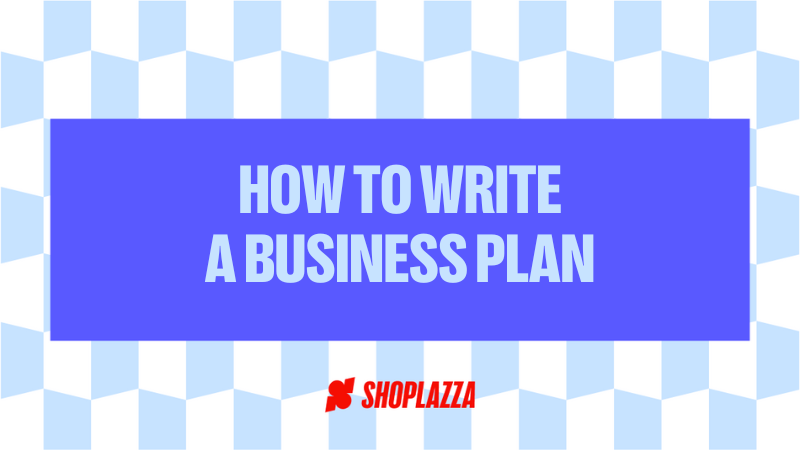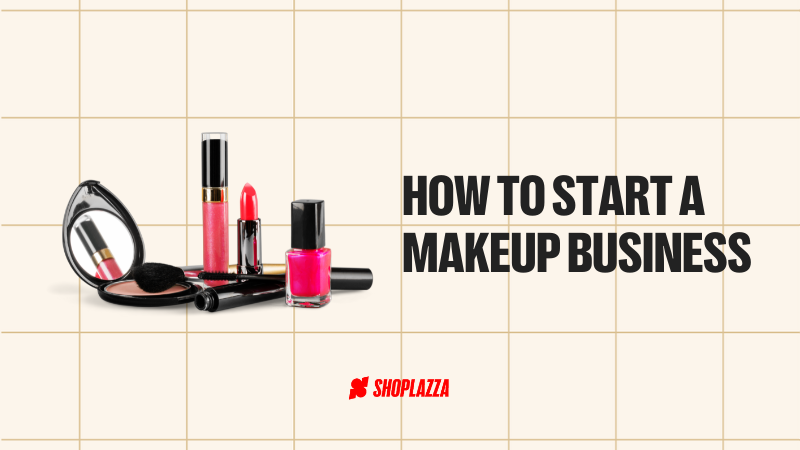
Do you know what a unique selling proposition is and why it's important? Today, we’re diving into this three-word concept to see how it can help small businesses generate sales and create powerful marketing messages.
You know the drill: Starting an online business is first about figuring out what type of product or service you want to sell. Then, you learn how to start an online store and afterward, you dive into branding, sketching out some logo ideas. After that, it’s time to tackle social media and figure out a marketing strategy.
It’s a lot to handle, especially when you’re just starting out and those first few sales aren’t coming in as quickly as you thought they might.
This is precisely the point where you need to face that other part of your business: customers. Are you offering them a good deal regarding quality and pricing? And what about your customer experience? Are you connecting with potential customers and new customers in a way that’s engaging and consistent?
If you’re unsure or do not have the actual data to answer those questions, it’s okay. The truth is, there are many things you can do to revert this situation ― and one of the most basic ones is looking at your unique selling proposition.
Because, to quote Beyoncé: Unique, that’s what you are. So let’s see how you transform that uniqueness into a selling point.
💰 Wanna know more about starting an e-business and check out some business ideas? Here are some posts to help you get started, plus a video!
- How to Sell Plants Online: A Guide to Cultivate Your Plant Business
- How to Start a Dropshipping Business in 10 Easy Steps
- 9 Unique Food Business Ideas You Can Taste-Test
- How to Make Enamel Pins to Sell Online: A Complete Guide
- 19 Side Hustle Ideas + Tips to Help You Make Extra Money Online
What is a unique selling proposition (USP)?
A unique selling proposition, or USP for short, it’s a statement that encapsulates why your business is, well, unique.
This uniqueness makes your business stand out from the rest, singling out the benefit that your brand, and your brand alone, can provide customers. This benefit is, of course, the thing you’ll use to push for a sale ― which is why a USP can also be referred to as a “unique selling point.”
This definition also makes it easier to see why a unique selling proposition is so essential for a business. In some senses, it’s an element at the core of how an online store operates, helping to define everything: From branding to how you’ll write interactive posts that engage on social media and the marketing strategies you might want to pursue.
A unique selling proposition is also your store’s competitive advantage summed up in a nutshell since it should be able to:
- Convince customers to shop from you and not the competition
- Highlight your company’s unique position in the market
- Captivate prospective customers and wow recurring ones
- Establish a connection with your company mission
- Sum up your mission statement and brand’s story
📝 Now might be a good time to polish your marketing skills, and we can help! Here are some of our top content about this topic:
- Direct Marketing: Definition + Examples to Connect with Your Customers
- Create an Effective Content Marketing Strategy for Your Ecommerce
- Marketing Budget: How to Invest Your Money in Marketing Strategy
- How To Optimize Your Email Marketing Strategy
Unique selling proposition vs value proposition
If you want to learn how to write your company’s unique selling proposition and you’ve already done some research online, you’ve likely come across one (or two, or three or even more) websites treating a USP as a value proposition.
Unfortunately, even though they’re similar terms with similar words, a unique selling proposition differs from a unique value proposition. Here’s why:
As we pointed out above, a unique selling proposition is a client-focused strategy that’ll show customers why your business stands out from other brands and what makes your product offering so unique.
We’ll cover some unique selling proposition examples in just a bit to make this a little bit clearer, but for now, let’s focus on the following elements to help you identify a USP:
- It’s a small text with at least one whole sentence but shorter than an entire paragraph.
- It’s typically placed in prominent spaces, like headers, main images, homepages and that perfect Instagram bio.
- It’s not your brand’s slogan but rather something that defines how your brand is positioned in the market.
A value proposition, on the other hand, is a business-focused component of your sales strategy. It’s usually a staple of a brand’s business plan, and its primary goal is to present your business and explain what it does.
USP vs UVP: a practical example
Here’s an example to illustrate the difference. Sweaty Betty is a well-known fitness company based in the UK, and it has one of the shortest unique selling propositions you’ll find:
Empowering women through fitness and beyond.
This USP has served as a sort of compass for the brand to define itself and its products, and you can see that it highlights three elements central to Sweaty Betty’s relationship with customers: It empowers women with fitness products, but it also offers more things (i.e., a sense of community and acceptance).
This unique selling proposition is also the sentence that opens their “About” page:

But when you scroll down and start reading the brand’s story, you’ll immediately stumble upon two or three sentences that serve as Sweaty Betty’s value proposition.
The header, in this case, is more critical since it’s the actual value proposition, which is almost that “elevator pitch” that describes the brand and what they do:
We’re Sweaty Betty, a global activewear and lifestyle brand for women.
📝 We can show you how to write a value proposition clearly and effectively and how to write a great “About” page, too!
5 unique selling proposition examples
Now that we’ve covered what a unique selling proposition is, it’s time to see some examples in action so you can get inspired to write yours.
1. P.F. Candle Co.: Keep it simple + local
The first spot on our list of unique selling propositions is just a little something to show that you can find your unique selling point even if you’re working with a product that doesn’t look that exclusive, like candles.
P.F. Candle Co., for instance, has a pretty simple yet straightforward USP where they highlight three key aspects of their products:
- Quality
- Mood (“home fragrance” + “great atmosphere”)
- Location (i.e., where the business is located and where it manufactures the candles)

This is an excellent example of how you can use a unique selling proposition to align customers’ expectations and show them something your brand alone can offer them. In P.F. Candle Co.’s case, what they offer are candles that are California-made (and thus have a sunny, cool vibe to them) that can help customers create a great atmosphere in their homes.
If you’re curious to know how they expand this USP into a more robust marketing strategy, you need only to scroll down their homepage, where you’ll see the section below.
Titled “The P.F. Difference,” it’s a short but sweet space where the brand expands its competitive advantage into three more significant unique aspects of its products―thus adding to that sense of uniqueness that’s so central to a USP.

🕯️Smelling something good over there? Learn how to make candles at home and sell them online!
2. Catbird: Sustainable is more precious than gold
If you’re thinking about selling jewelry online, you need to check out Catbird. This NY-based brand is one of the best examples of how to formulate a unique selling proposition for niches that are already selling high-end products, like engagement rings or gold earrings.
Here’s their USP, which is also the first block of text that visitors see when they scroll down the store’s website:
Catbird jewelry is made with love in our Brooklyn studio and with the help of a few trusted partners using over 95% recycled gold, 95% recycled diamonds, and ethically sourced precious stones.
This is a compelling unique selling proposition, not least because it helped Catbird position itself as:
- Local: It’s made in Brooklyn
- Exclusive: They only work with a couple of trusted partners
- Sustainable and ethical: All gems are ethically sourced and their work is super sustainable
If you scroll further down the page, you’ll find a more developed and expanded version of their USP. This paragraph also serves to offer visitors some background on the company and its mission statement, too.


🌳 If you got sustainability on your mind, why not start a green marketing strategy?
3. Adanola: Focus on community
If you’re interested in fostering a real sense of community and lifestyle with your brand, then you should definitely check out Adanola’s unique selling proposition. Their USP is highlighted on the brand’s homepage and uses quite a bold formatting, as shown in the image below.

One of the reasons this unique selling proposition works is that it can pinpoint exactly what the brand is offering and why the company’s products are so unique, even though we’re talking about a highly competitive niche.
In just two sentences, the brand has successfully:
- Stated that it is not like other activewear brands
- Declared that it’s more than a brand and that shopping with them is about becoming part of a community
- You don’t have to be slim to use their products ― they’re designed to make you feel “like your very best self.”
Their unique selling proposition is further highlighted when you scroll down the same landing page because there’s a whole carousel of images and videos made of user-generated content. This way, the brand can prove that it forms a community with their customers.

👚 We have a complete guide on how to start a clothing brand, so make sure to check that out too!
4. Fable: Problem-solving techniques
Fable is another fantastic example of unique selling proposition that stands out among competitors.
The brand is an expert in positioning its products as gears that can solve many of the most common or pressing issues pet owners face with their pets. When you read their USP, you can see that the word “gear” is actually one of Fable’s greatest strengths: It showcases their products’ unique quality and differentiates them from the rest of the competition.

And, when you read their story on the “Our Story” tab, it’s clear that the use of “gear” in their compelling USP was a calculated choice.
After all, they make it very clear that there are no safety standards for pet products in the market ― which means the brand has had to come up with their own protocols to test and certify the gear they’re creating.

5. bareMinerals: More than just a slogan
Last but not least in our unique selling proposition examples is bareMinerals, a skincare and makeup brand with a well-established reputation as a sustainable brand.

Their USP looks a lot like a slogan ― So pure you can sleep in it ― but it’s connected with the brand’s mission and values, as stated on one of their landing pages.
What’s really outstanding here is how the brand was able to position something that many people who wear makeup tend to do (i.e., sleep with their makeup on) into something that’s a unique selling proposition. This is all the more remarkable because sleeping with your makeup on is widely considered bad for the skin.
Once you start reading their story, you understand how they turned this negative into a positive: bareMinerals is committed to creating skin-improving cosmetics with a pure formula, which means that their products don’t damage the skin in the long run.

How to write a strong unique selling proposition
Now that we’ve covered some examples of unique selling propositions created by other ecommerce brands, it’s time to start thinking about how you can write a USP for your online store.
Here are some tips to help you get started:
Steer away from using the word “unique”
This might sound a bit off, considering we’re talking about creating a unique selling proposition, but the truth is that “unique” is not a word that should be present in your USP.
Here’s why: It doesn’t convey a concrete idea for your customers because anything can be unique. At the same time, it’s tough to define what a brand means by “unique.”
To put things into perspective, let’s imagine that you have an online store that specializes in stationery items and your products’ unique benefit or commercial advantage is anchored in the following aspects:
- You only work with recycled paper to create notebooks
- Everything is made by hand
- You have a physical location where customers can drop off used notebooks to be recycled
Those are all great selling points ― but they’ll lose their power if you write up a unique selling proposition like:
Our one-of-a-kind notebooks are unique and handmade
It doesn’t say much about your products and what they offer, right? So maybe you can start with something like this:
We are an independent collective of artisans that creates notebooks using nothing but recycled paper. Everything is made by hand in our atelier, and we are committed to fostering a circular economy with our products.
See? Much better, right?
Bonus point: A USP is not just words
Remember that besides steering away from “unique,” you should also avoid other generic terms or expressions like we deliver exceptional customer service.
This is just another example of words that don’t convey anything to a potential customer: What’s so exceptional about it anyway? As the store owner, you probably know, but a new visitor likely doesn't.
Find your audience
Finding the right target audience can be a hassle, but it’s an important step to take if you wish to sell more and market your products better.
In terms of crafting your unique selling proposition, keep in mind that it’s no use to try to talk to everyone: This will only make your copy sound a bit too generic, and it won’t captivate the audience you want to sell to.
You won’t get it right the first time around
Remember: Writing a successful USP requires a lot of creative work, so you probably won’t come up with the perfect solution the first, second, or even third time around.
Much like creating a slogan or a logo, a unique selling proposition will likely require you to play around with options, words and sentences. You saw how one single word can make or break a USP, right? So keep that in mind and don’t get discouraged when you start.
Message it everywhere
Once you do write your unique selling proposition, keep in mind that you now have a vital strategic asset for your store ― and one that you can use in different channels.
You can place your USP on your homepage or in specific promotional landing pages. Another option is putting it in your social media profiles, possibly in your bio, and in some other advertising area that can help you reap good results.
Time to write up your company’s USP
Now you’ve got all the basics to start writing your unique selling proposition. Remember always to write as though you were talking to your ideal customer, and be specific about that particular product or service you’re trying to sell.
Here at Shoplazza, we’re committed to helping you and your business thrive. You can count on us for more ecommerce tips and guides!




